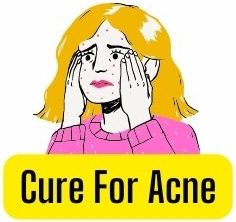For generations, the belief that chocolate consumption leads to acne breakouts has been deeply ingrained in popular culture. This long-standing myth has caused undue stress and dietary restrictions for countless individuals seeking clear skin.
However, recent scientific research suggests that the relationship between chocolate and acne may not be as straightforward as once thought. In order to understand the true causes of acne and effectively manage its symptoms, it is essential to examine the origins of this enduring misconception and evaluate the available evidence on the subject.
The purpose of this article is to provide an objective analysis of current research findings on the association between chocolate consumption and acne breakouts, debunking misconceptions that have persisted for decades.
By shedding light on the real causes of acne and offering practical tips for controlling its symptoms, those affected by this common skin condition can be empowered to make informed decisions about their diet and skincare routines without being hindered by outdated beliefs.
Ultimately, a deeper understanding of these issues will offer greater freedom from self-imposed dietary limitations based on unfounded assumptions surrounding chocolate’s role in exacerbating acne-related issues.
Key Takeaways
– Recent scientific research challenges the long-held belief that chocolate consumption leads to acne breakouts.
– Hormonal imbalances, bacteria, and excess oil production are primary causes of acne breakouts.
– Proper management strategies focusing on bacterial resistance and oil control can aid individuals suffering from acne.
– Opting for healthier alternatives such as dark chocolate can diminish the likelihood of acne development.
The Origins of the Chocolate and Acne Myth
Tracing back the origins of the chocolate-acne myth reveals a fascinating interplay between cultural beliefs and scientific inquiry, offering intriguing insights into how such misconceptions persist through time.
While acne triggers have long been debated, the notion that chocolate consumption contributes to acne formation can be traced back to the early 20th century.
During this period, when dermatology was still in its infancy, researchers attempted to identify dietary factors contributing to skin eruptions.
In particular, they focused on high-fat foods and sweets – both of which were considered indulgences during that era – leading to an association between chocolate and pimples.
Over time, various studies have been conducted to explore this relationship further; however, results have often been conflicting or inconclusive.
A groundbreaking study in 1969 by Fulton et al. claimed no connection between chocolate consumption and acne development; yet it faced criticism for methodological flaws.
More recent research has started focusing on the potential role of high-glycemic diets (including sugary treats like chocolate) in exacerbating acne symptoms in some individuals but has yet to establish a direct causal link between chocolate itself and pimple formation.
As such, while it remains essential for those prone to breakouts to monitor their diet closely for possible triggers, debunking the widely-held belief that consuming moderate amounts of chocolate directly causes acne allows individuals greater freedom in their food choices without undue fear of skin-related consequences.
Recent Research on Chocolate and Acne
Recent studies on the correlation between cocoa consumption and acne development have provided compelling evidence to challenge long-held beliefs.
Researchers have been investigating potential acne triggers, including diet, hormonal imbalances, and genetics, in an effort to better understand the complex nature of this skin condition.
While some early research suggested that high sugar and fat content in certain chocolate products may contribute to acne, more recent studies have focused on the impact of pure cocoa itself.
Surprisingly, these investigations revealed that cocoa actually possesses a range of skin benefits due to its rich antioxidant properties.
In a noteworthy study published in the International Journal of Dermatology, participants were given either pure dark chocolate or a placebo for four weeks.
The researchers found no significant difference in acne severity or inflammatory markers between the two groups. This suggests that it is not necessarily chocolate itself that contributes to acne but rather other factors present in processed chocolate products such as sugar and dairy.
Furthermore, other studies have demonstrated that flavonoids found in cocoa can help protect against UV damage and promote healthy blood flow to the skin – both of which can contribute positively to overall skin health.
As such, it appears that debunking the chocolate and pimple myth requires acknowledging the distinction between processed chocolate products and pure cocoa while also recognizing their respective impacts on skincare outcomes.
Understanding the Real Causes of Acne
Acne, a common skin condition affecting millions worldwide, has been attributed to various factors that contribute to its development.
Hormonal imbalances, bacteria and excess oil production have been identified as primary causes of acne breakouts.
Additionally, diet and lifestyle factors may also play a significant role in the severity and frequency of this prevalent ailment.
Hormonal imbalances
Hormonal imbalances, rather than chocolate consumption, have been identified as a significant factor contributing to the development of acne in individuals.
This is because hormonal fluctuations can lead to an increase in sebum production, which can subsequently cause clogged pores and promote bacterial growth, resulting in acne breakouts.
Additionally, stress has been shown to impact hormone levels and exacerbate existing acne conditions.
It is essential for individuals seeking freedom from this skin condition to understand the role hormones play in their overall skin health and consider addressing any potential imbalances through appropriate measures.
In order to maintain healthier skin and mitigate the effects of hormonal imbalances on acne development, it is crucial for individuals to adopt lifestyle changes that promote hormone balance.
Such changes may include a balanced diet with emphasis on nutrient-dense foods rich in antioxidants and anti-inflammatory properties, regular exercise routines that help regulate hormonal activity, adequate sleep patterns that support natural hormone regulation processes, and stress management techniques such as meditation or yoga.
By incorporating these holistic approaches into daily routines and focusing on overall well-being rather than solely targeting chocolate consumption or specific food triggers, individuals are more likely to achieve sustainable improvement in their skin’s appearance while also experiencing increased freedom from the physical discomforts associated with persistent acne breakouts.
Bacteria and excess oil production
Bacterial proliferation and excessive sebum production play a significant role in acne development, as the combination of these factors can lead to clogged pores and inflammation, ultimately resulting in breakouts.
The overgrowth of Propionibacterium acnes (P. acnes) bacteria contributes to the formation of pimples by promoting pro-inflammatory cytokines and causing follicular rupture.
Excessive oil production, on the other hand, results from hormonal fluctuations or genetic factors that can trigger an increase in sebum secretion. This excess oil serves as a breeding ground for P. acnes bacteria and further exacerbates inflammation.
| Factors Influencing Acne | Potential Consequences | Possible Solutions |
|---|---|---|
| Bacterial Overgrowth | Inflammation & Follicular Rupture | Antibiotics & Topical Treatments |
| Excessive Sebum Production | Clogged Pores & Increased Bacteria Growth | Oil Control Products & Hormonal Treatments |
| Hormonal Imbalances | Increased Oil Production & Inflammation | Hormone Therapy & Lifestyle Changes |
| Poor Diet Choices | Potential Increase in Inflammation/Oil Production | Balanced Diet with Low Glycemic Index Foods |
| Stress Levels | Elevated Hormones Contributing to Acne Formation | Stress Management Techniques |
Although there is no direct evidence linking chocolate consumption with acne development, it is essential to consider the impact of diet on overall skin health. Consuming foods high in sugar may cause insulin spikes that could potentially aggravate acne-prone skin by increasing sebum production or amplifying inflammation levels within the body.
Nonetheless, proper management strategies focusing on bacterial resistance and oil control—such as using antibiotics, topical treatments, maintaining a balanced diet with low glycemic index foods, hormone therapy when necessary, stress management techniques—can aid individuals suffering from this condition while providing them with the freedom they desire from persistent breakouts.
Diet and lifestyle factors
The complex interplay between diet and lifestyle factors significantly influences the severity and persistence of acne, necessitating a comprehensive approach to address this ubiquitous skin condition effectively. While the notion that chocolate consumption directly causes pimples is unfounded, certain dietary triggers may exacerbate acne in predisposed individuals.
Moreover, stress has been shown to play a considerable role in the development of this inflammatory condition. Therefore, understanding and addressing these factors is crucial for implementing targeted interventions aimed at reducing the burden of acne.
- 1. Dietary triggers: Various studies have demonstrated that specific dietary components can contribute to acne severity by influencing hormonal fluctuations, inflammation, and insulin resistance. For instance, high glycemic index foods and dairy products have been associated with increased risk of developing or worsening acne symptoms.
- 2. Stress connection: A growing body of evidence suggests that psychological stress can exacerbate acne through various mechanisms such as increasing cortisol levels and impairing skin barrier function.
- 3. Lifestyle modifications: To manage acne effectively, it is essential to adopt a holistic approach encompassing healthy eating habits (e.g., consuming low glycemic index foods), proper skincare regimen (e.g., regular cleansing without over-washing), physical activity (to reduce systemic inflammation), adequate sleep (to promote skin repair) and effective stress management techniques (e.g., mindfulness meditation).
By acknowledging and addressing these interconnected factors holistically, individuals struggling with acne may experience significant improvements in their skin health while gaining a sense of control over this distressing condition.
Tips for Managing Acne Breakouts
Implementing a consistent skincare routine can effectively help in managing acne breakouts and maintaining healthy skin. A well-designed regimen incorporates acne-fighting ingredients such as salicylic acid, benzoyl peroxide, and retinoids, which target different aspects of acne development.
For example, salicylic acid unclogs pores by breaking down debris within them, while benzoyl peroxide kills acne-causing bacteria and reduces inflammation.
Retinoids work by increasing cell turnover to exfoliate the skin and prevent pore clogging. Additionally, incorporating gentle cleansers that remove excess oil without stripping the skin’s natural moisture barrier is essential for overall skin health.
Lifestyle factors also play a crucial role in the management of acne breakouts. Studies have shown that stress can exacerbate acne by increasing sebum production and inflammation (Chiu et al., 2003).
Therefore, practicing stress-reducing techniques such as meditation or exercise may help improve complexion over time.
Moreover, evidence suggests that certain dietary choices influence hormonal activity related to sebum production (Melnik et al., 2009), so consuming a balanced diet rich in whole foods with low glycemic index is recommended for optimal skin health.
Finally, maintaining proper hydration levels throughout the day aids in flushing out toxins from the body and promoting overall well-being – thus contributing to clearer skin.
The Verdict on Chocolate and Acne
The relationship between chocolate consumption and acne has been a subject of debate for years; however, recent studies suggest that moderation and balance in one’s diet may play a crucial role in managing breakouts.
Choosing healthier chocolate options, such as dark chocolate with high cocoa content, could potentially provide skin-friendly benefits due to its antioxidant properties.
Further research is necessary to fully understand the impact of different types of chocolate on acne development and severity, but maintaining a balanced diet appears to be an essential factor in promoting overall skin health.
Moderation and balance
Striking a harmonious equilibrium between indulgence and restraint, particularly in consuming chocolate, can aid in debunking the persistent myth that links this delectable treat to skin blemishes.
Balanced consumption of chocolate not only allows individuals to enjoy its delightful taste but also benefit from its various health advantages, such as antioxidant properties and mood-enhancing effects.
Moderate indulgence in chocolate has been proven to have no direct correlation with acne development, provided that the individual maintains a healthy diet rich in nutrients and low in processed sugars.
It is essential for individuals to be informed about the importance of moderation when it comes to incorporating chocolate into their diet without jeopardizing their overall health or exacerbating any existing skin conditions.
Furthermore, understanding that acne formation is primarily influenced by factors such as genetics, hormones, and hygiene habits rather than solely by dietary choices will empower individuals seeking freedom from this pervasive misconception.
A balanced approach towards nutrition involves making informed decisions about food intake while being mindful of portion sizes and nutritional value.
By practicing moderation and maintaining a well-rounded diet inclusive of varying food groups, one can experience both physical and emotional satisfaction without falling prey to unfounded myths surrounding chocolate consumption.
In conclusion, dispelling the age-old notion linking chocolate to acne requires acknowledging the benefits of moderate indulgence within a balanced lifestyle while recognizing that numerous other factors contribute significantly more toward acne development than mere dietary choices alone.
Choosing healthier chocolate options
Opting for healthier alternatives when it comes to selecting chocolate can further diminish the likelihood of acne development while still allowing individuals to indulge in this delectable treat without compromising their overall well-being.
One such alternative is dark chocolate, which boasts numerous health benefits due to its high cacao content. Cacao, derived from the seeds of the Theobroma cacao tree, is packed with antioxidants, flavonoids, and essential minerals that can promote heart health, improve brain function, and even help regulate blood sugar levels.
In comparison to milk or white chocolates that contain higher amounts of sugars and dairy products—factors often linked to acne breakouts—dark chocolate offers a more nutritious option.
In order to reap the most benefits from dark chocolate consumption, it is crucial to select varieties with a high percentage of cacao content (ideally 70% or higher).
A higher cacao percentage not only equates to greater antioxidant properties but also results in lower sugar content which aids in mitigating inflammation within the body—an important factor considering that inflammation has been identified as one of the primary triggers for acne formation.
Furthermore, research indicates that compounds found in dark chocolate may even possess anti-inflammatory and antimicrobial effects on certain strains of bacteria associated with acne vulgaris.
Thus, making mindful choices when indulging in chocolate treats can contribute positively towards an individual’s journey towards achieving clearer skin and overall better health without sacrificing their desire for freedom and enjoyment.
Frequently Asked Questions
What are the common misconceptions about chocolate and acne in popular culture?
It is a widely held belief, bordering on hysteria, that devouring chocolate is synonymous with the eruption of unsightly acne breakouts. Such chocolate myths have persisted in popular culture for decades, leading to unnecessary guilt and restrictions on this delectable treat.
However, recent scientific investigations into acne triggers have refuted such claims by focusing on evidence-based analysis. Informed by rigorous research methodology, these studies demonstrate that there is no conclusive link between moderate chocolate consumption and an increase in the severity or frequency of acne breakouts.
As such, it is essential for individuals seeking liberation from baseless constraints imposed upon their dietary choices to become acquainted with these empirical findings and relish their beloved cocoa-infused delights without fear or trepidation.
How does the sugar content in chocolate contribute to acne, if at all?
Investigations into the sugar impact on acne inflammation have revealed that there may be a connection between the two, albeit not as straightforward as popular culture might suggest.
High-glycemic diets, which consist of foods with a rapid increase in blood sugar levels such as sugary snacks and beverages, have been linked to increased sebum production and inflammatory cytokines – both of which contribute to acne development.
While chocolate itself does contain sugar, it is essential to note that its glycemic index varies depending on the type of chocolate consumed; for instance, dark chocolate generally has a lower glycemic index compared to milk or white chocolate.
Therefore, it is more accurate to associate excessive sugar consumption rather than chocolate alone with potential exacerbation of acne inflammation.
In conclusion, moderation in sugar intake and opting for lower-glycemic alternatives like dark chocolate are advisable for individuals concerned about their skin health.
Are there specific types of chocolate that are more likely to cause acne breakouts?
Akin to a shadowy villain in an age-old fable, the myth that chocolate causes acne breakouts perseveres; despite studies purporting otherwise.
When considering chocolate quality and pimple triggers, it becomes evident that not all chocolates are created equal. Research suggests high-quality dark chocolate containing a higher percentage of cocoa (and thus, lower sugar content) is less likely to contribute to acne breakouts than its milk or white counterparts, which have higher sugar and dairy content.
It is crucial to note that while there may be correlations observed between certain types of chocolate consumption and acne breakouts in some individuals, further scientific investigation is necessary to establish causation.
In conclusion, the quest for freedom from skin blemishes should not solely focus on abstaining from specific types of chocolate but rather encompass a holistic approach towards skincare and dietary choices informed by evidence-based research.
How can I enjoy chocolate in moderation without worsening my acne?
In order to enjoy chocolate in moderation without exacerbating acne, it is essential to understand and identify individual acne triggers and recognize the potential benefits of chocolate consumption.
Research suggests that a high glycemic index (GI) diet can contribute to acne formation; therefore, selecting low GI chocolates such as dark chocolate with a higher cocoa content may be a more suitable option for those concerned about their skin health.
Dark chocolate also contains antioxidants and anti-inflammatory properties that can provide some health benefits.
Moreover, practicing mindful eating habits by consuming small portions and savoring each bite can assist in maintaining moderation while also satisfying cravings.
Ultimately, monitoring one’s personal response to different types of chocolate and making informed choices based on individual circumstances will aid in achieving the delicate balance between indulgence and skincare management.
What other foods should I avoid or be cautious of when trying to prevent acne breakouts?
Navigating the treacherous waters of acne prevention can be a daunting task, but knowledge is power when it comes to understanding which foods may exacerbate breakouts.
Hormonal triggers, such as those found in certain types of food, can contribute significantly to acne development.
Dairy impact on skin health has been highlighted in numerous studies; high consumption of milk and related products has been associated with increased prevalence of acne.
Additionally, foods with a high glycemic index (e.g., white bread, pasta, and sugary snacks) can cause rapid spikes in blood sugar levels and have been linked to inflammation and acne formation.
Therefore, adopting a diet that focuses on low-glycemic foods and reduces dairy intake may prove beneficial in the pursuit of clear skin while allowing for the enjoyment of occasional chocolate treats without fear.
Conclusion 💭
In conclusion, the notion of chocolate being a direct causative agent for acne breakouts appears to be an unfounded myth. Rigorous research studies have not been able to establish any substantial correlations between the consumption of chocolate and the prevalence of acne.
As such, this age-old belief can be likened to a mirage in the desert: seemingly real, yet ultimately devoid of substance.
Delving deeper into the realm of dermatology reveals that myriad factors contribute to acne development, including hormonal imbalances, genetics, and lifestyle choices.
Knowledge is power; armed with accurate information on the true causes behind acne outbreaks, individuals are better equipped to navigate through their skincare journey without falling prey to baseless myths.
Like a lighthouse guiding lost ships at sea, genuine understanding provides clarity amidst uncertainty and misguidance.





